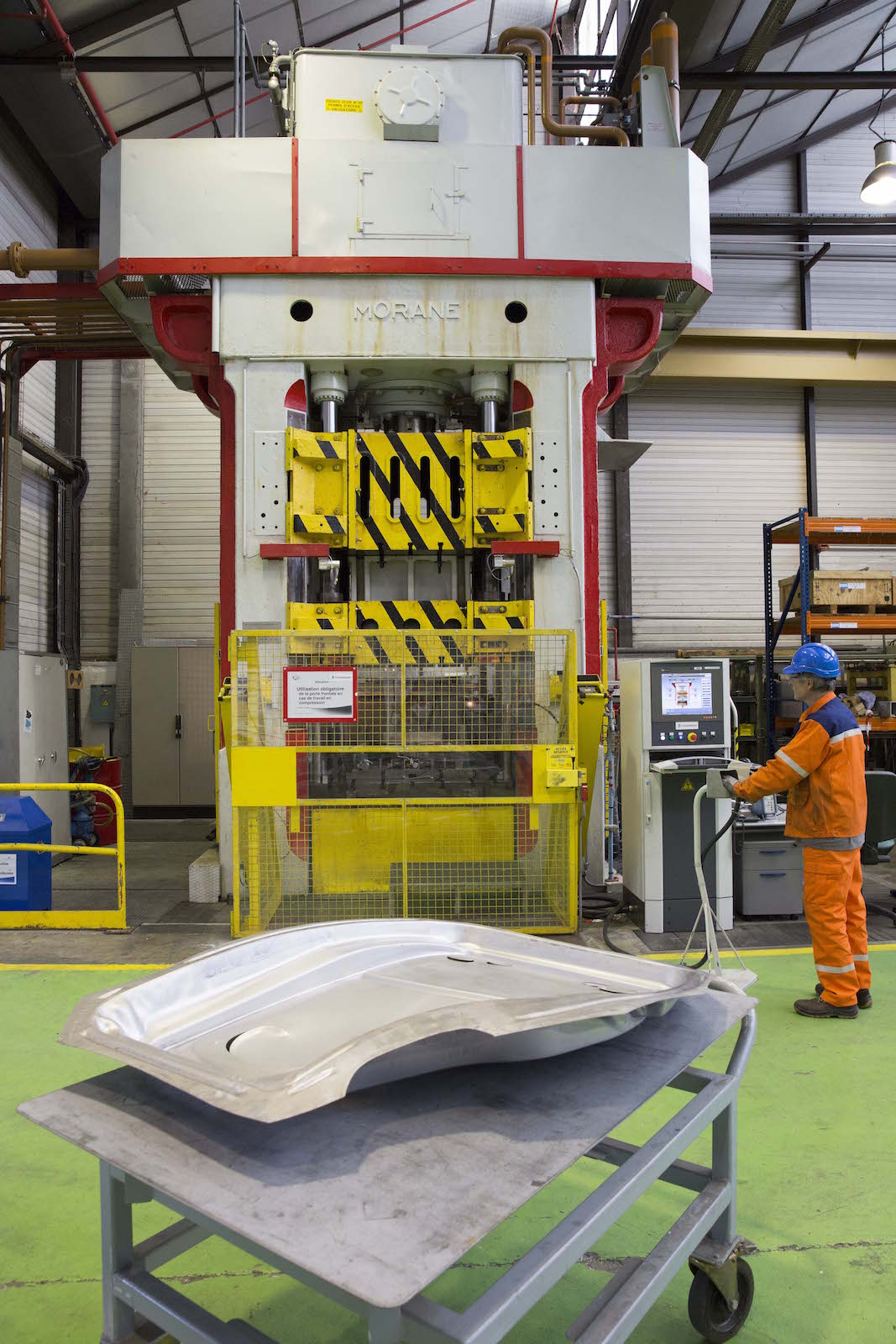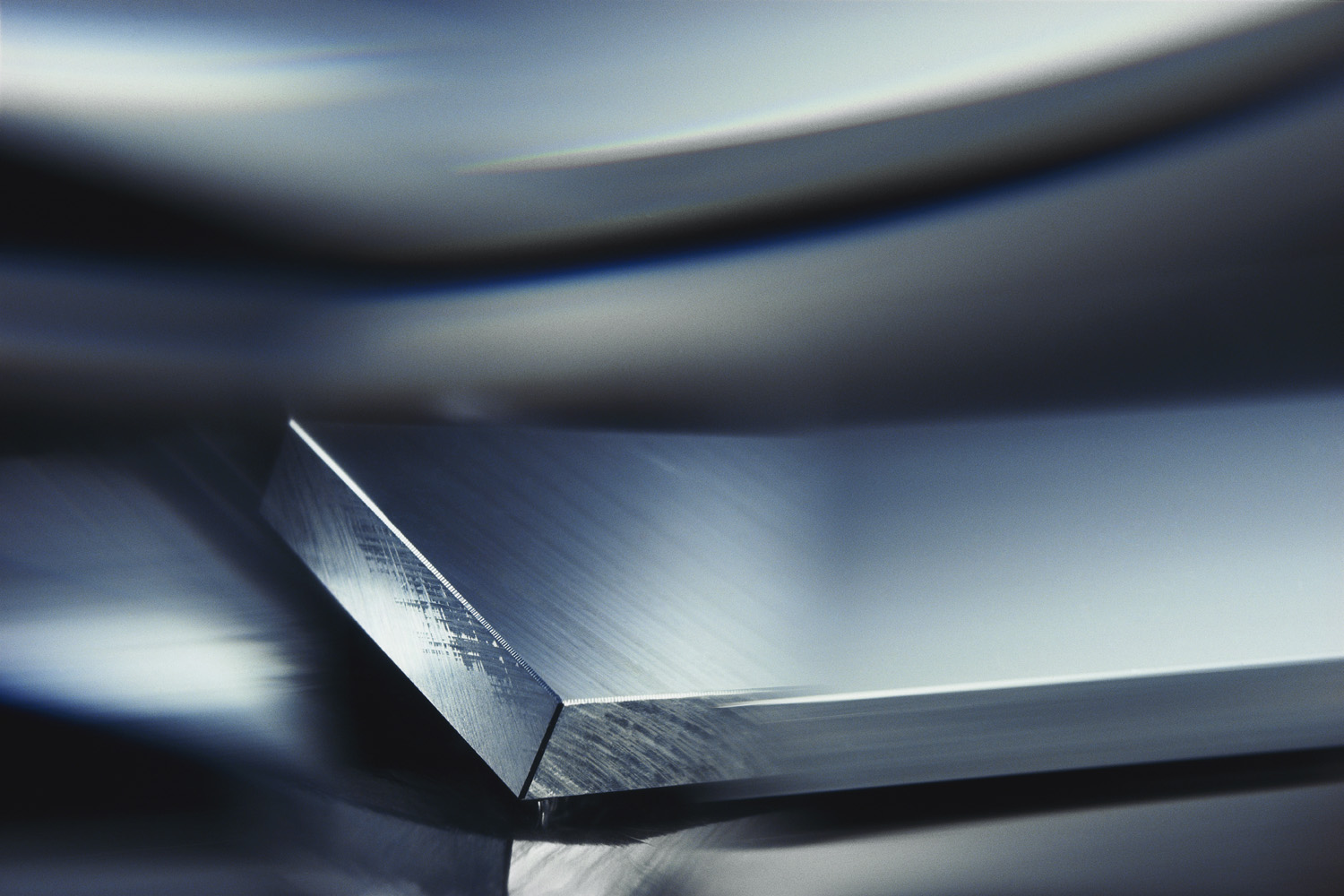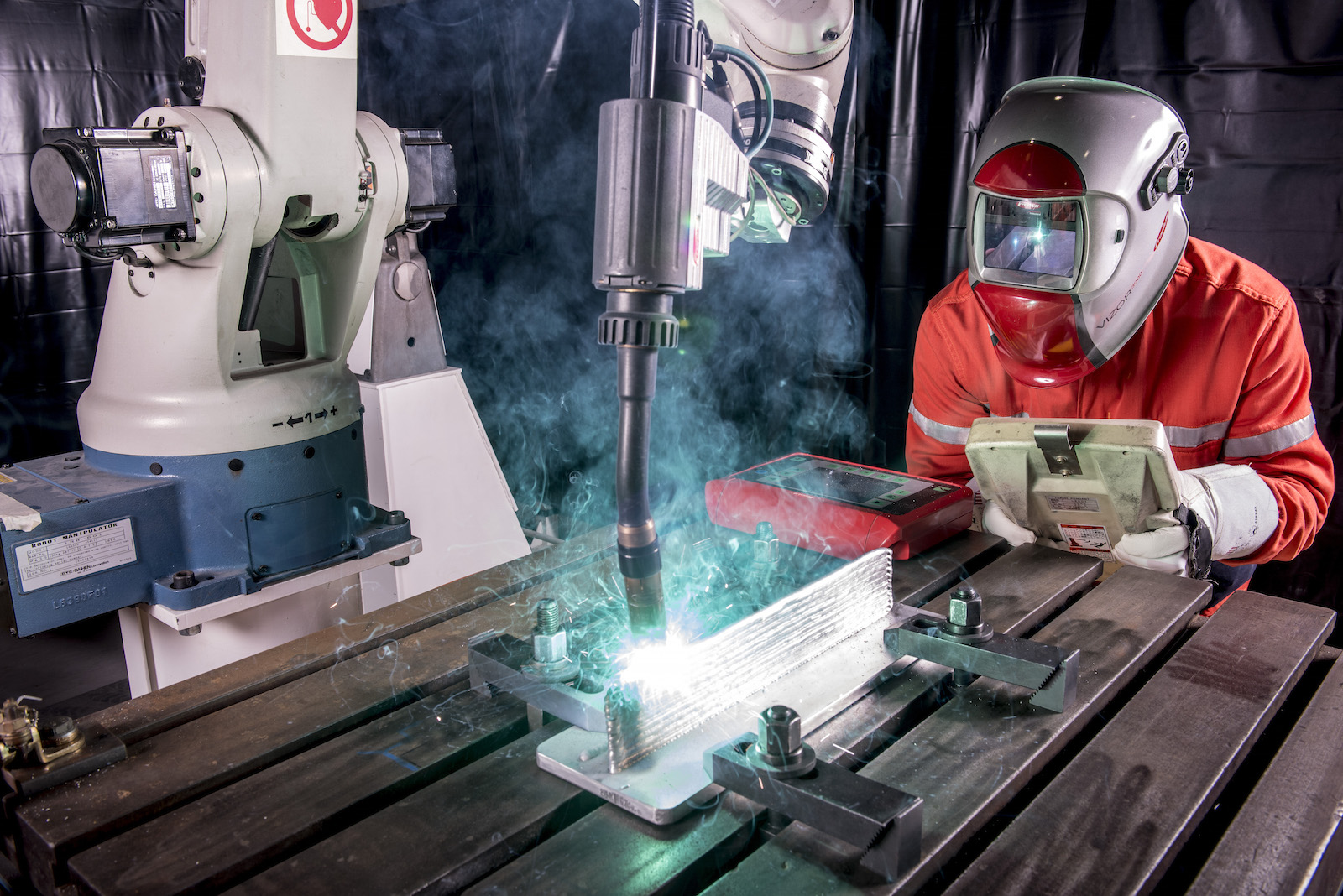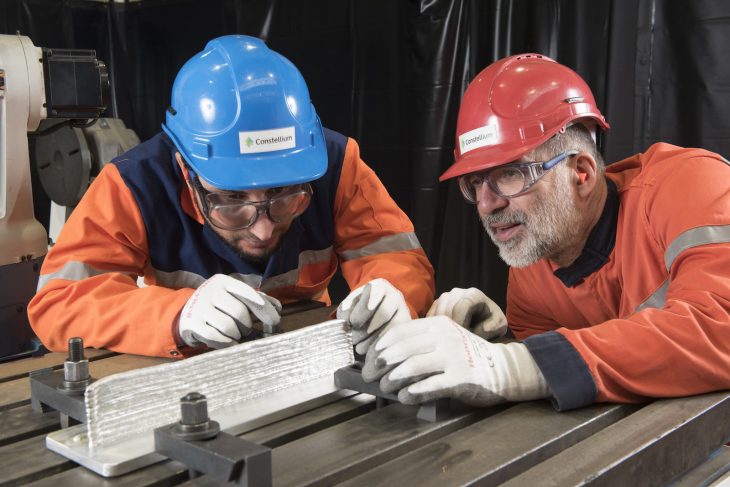Constellium N.V. is celebrating the 50th anniversary of its world-class research and technology center, C-TEC, in Voreppe, France. C-TEC has greatly contributed to positioning Constellium as a global leader in aluminum transformation, by developing high value-added products and solutions for today and tomorrow.
“Innovation is at the core of Constellium’s strategy as it creates competitive advantages for both our business and our customers,” said Jean-Marc Germain, CEO of Constellium. “For aluminum to remain the material of choice, constant innovation in close partnership with our customers is required. C-TEC is the driving force to deliver on this innovation.”
Research Center Profile
C-TEC opened near Grenoble in France in 1967 with the aim of promoting aluminum utilization in all industries and supporting the development of new primary production technology. Pechiney originally formed the research center by regrouping existing research centers into a single location in order to benefit from better synergies. Since 2003, the center was a part of Alcan Engineered Products, which was renamed Constellium after becoming an independent company in 2011.
Consistent expansion and modernization of its capabilities and capacities enables C-TEC to support Constellium in the development of its various businesses and projects using industry-leading resources and facilities. For example, C-TEC opened a research and technology hub in the U.S. in 2016. Located in Plymouth, Michigan, close to Detroit and Ann Arbor University. this C-TEC U.S. hub will support the growth of automotive aluminum and develop lightweight solutions in close collaboration with OEMs.
C-TEC brings together more than 200 high-level specialists from over 20 nationalities, with industry-leading resources and facilities, utlizing cutting-edge scientific hardware, prototype, and pilot-project instruments and modeling technology to develop high value-added products and solutions. The center focuses on two key areas — R&D to develop next generation products and solutions, and technology to support Constellium’s plants to reach technical excellence and to industrialize new products.
While new products and solutions are conceived and incubated in labs, C-TEC benefits from its prototyping capabilities at industrial scale. The center can form an entire auto hood, test new designs for beverage cans, or cast full-scale slab and billet in its pilot cast house. Thanks to this “lab to industrial scale” approach, innovations are fully tested to ensure they can be produced at high quality, low cost, and short timeline for customers. The equipment can be used to design, test, and model high performance materials and processes, from the nano- to the macroscopic scale. C-TEC is able to provide support ranging from technical assistance to metallurgical prototyping. The center also offers simulation and numerical modeling capabilities to help develop and design customer products using Constellium metal, which reduces development time and ensures very short time to market.

Scientific Collaboration
Collaborating with the academic world is also essential to both Constellium and C-TEC. In 2013, Constellium formed an International Scientific Council, gathering together the world’s top materials scientists in order to further strengthen its technical leadership and innovation performance. At any given time, C-TEC enjoys around 40 collaborations with academic and scientific partners. Among C-TEC collaborative partners is MIT, University of Southern Carolina, and Worchester Polytechnic Institute in the U.S.; Brunel University and University of Manchester in the U.K.; the CRNS university laboratories, IRT Jules Verne, and IRT M2P in France; RWTH Aachen in Germany; EPFL Lausanne in Switzerland; and TU Delft in the Netherlands.
In 2016, Constellium inaugurated the new Constellium University Technology Center (UTC) at Brunel, a dedicated center of excellence for designing, development and prototyping.
“Our C-TEC teams work closely with Constellium’s International Scientific Council, gathering several of the world’s top material scientists, and in partnership with over 40 renowned universities worldwide. Together, our skilled and experienced scientists focus on harnessing the benefits of aluminum and developing solutions in the shortest possible time to market,” indicated Peter Basten, executive vice-president of Strategy, Business Development and R&D at Constellium.
Continued Innovation
During the last 50 years, C-TEC has been the birthplace of more than 600 patent families and trademarks, including breakthrough innovations in aerospace, automotive, and packaging. In 2016 alone, the center has filed 19 patent applications. A few of the developments at the center are described below.
Aerospace
The patented aluminum-lithium Airware® technology was considered a game changer for the aerospace and space market. The high performance aluminum-lithium alloys tailored for aircraft and spacecraft structures provide a lower density, higher stiffness, and a better damage tolerance. These properties combined with advanced welding enable optimized aircraft structures, leading to a weight reduction of up to 25% and a decrease in CO2 emissions. Furthermore, Airware’s higher corrosion and fatigue resistance increases durability of aerostructures and guarantees longer heavy maintenance intervals. The alloys are 100% recyclable through Constellium’s patented recycling process. No fewer than seven different Airware alloys are on planes flying today, including the A350-XWB wide-body twinjet from Airbus, and the CSeries single-aisle twinjet, short-haul planes from Bombardier.
Constellium is building on this success by expanding its Airware portfolio with new additions, including:
- Airware 2074, a high performance external fuselage sheet product that offers a combination of low density and high damage tolerance properties
- a new Airware external fuselage sheet product with very low density enabling direct substitution of current skin materials
- Airware 2065 and 2076, the latest high performance extruded solutions delivering improved performance for wing and fuselage structures

Automotive
C-TEC has developed world-class sheet alloys and process routes for all major automotive applications, including: highly formable outer skins and closure inners, high strength alloys for internal structures, and crash-performance optimized alloys. In addition to alloys, the center provides complete solutions for the conversion from steel to aluminum, such as advanced enabling technologies for forming or joining.
Minimizing driver and passenger injuries in vehicle collisions remains a constant challenge for automotive manufacturers. Through material lightweighting and simplified design, C-TEC has been able to rethink the way key components of the vehicle’s front area are made, resulting in safer, stronger vehicles. Thanks to Constellium’s collaborative efforts, the Mercedes-Benz C-Class became the first car to use an all-aluminum crash management system (CMS), featuring an inserted crashbox (an article on this new development will appear in the August 2016 issue of Light Metal Age). This co-developed crashbox was a breakthrough in the way OEMs approached CMS and is now used by several automotive manufacturers.
“In automotive, the big opportunity is the impressive demand and ramp up of Al for this industry. We have always believed that this will come, and now Al for the auto mass market is becoming a reality – at an accelerated pace,” said Basten. “Our latest alloys already offer increased strength such as Strongalex®Plus and Securalex®HS for structural and crash applications together with extrusion-based crash management systems. The challenge is to continue to increase formability, strength and energy absorption while meeting all the other technical requirements competitively. Lightweighting and recyclability are the key drivers.”

(© Gerard Uferas.)
Packaging
For packaging, C-TEC has a particular focus on process improvements to optimize cans and closures that offer differentiation to both customers and consumers. For beverages, the center adapted the traditional can stock alloy to the specific needs of the new aluminum bottle. Constellium partners with manufacturers to improve aesthetic and functional attributes to aluminum closures. Recycling remains a strong trend, which is why the company is developing new sorting and recycling technologies to expand end-of-life scrap sourcing.
One of C-TEC’s most recent solutions in packaging is Aeral™, a new aluminum solution for the aerosol market. Aeral implements the drawn and ironed (D&I) technology currently used to produce beverage cans in order to yield a significant weight savings of 30% compared to traditional impact extruded containers, all while maintaining the same level of performance in terms of resistance to pressure and ductility.
“Constellium’s Aeral™ is developed from a specific alloy that can be used efficiently throughout the D&I can making process, including the specific necking operation, while meeting the pressure resistance and aesthetical requirements of cosmetics companies,” highlighted Hervé Vichery, customer technical support manager at Constellium.
Current and Ongoing Research
C-TEC continues to innovate in its key markets, namely aerospace, automotive, and packaging. The center is not only investigating new alloys, but also focuses on process, solutions, and the future of aluminum. C-TEC constantly monitors and evaluates the mega-trends that are shaping the next generation of materials, such as the ‘aluminization’ of the automotive market, 3D printing, and the advent of Industry 4.0. Some examples of actual research currently being investigated includes:
- C-TEC is developing new aluminum alloy powders and wire for additive manufacturing, which will allow for the replacement of multi-part assemblies with single piece designs. It will also enable designers to imagine shapes impossible until now.
- The center is active in the development of new technologies for forming aluminum parts and for their assembly into automotive body structures. To facilitate implementation at automakers plants, specific process parameters are derived from numerical simulation and full-scale experiments.
- Industry 4.0 and Digital transformation – C-TEC is helping to build the factory of the future by combining new sensors, advanced analytics, and process modeling in a prototype data architecture for better products and manufacturing excellence.
Through innovation, Constellium continues to work toward achieving its two-fold ambition of contributing to the creation of environmentally friendly solutions and working alongside customers to shape the future.


